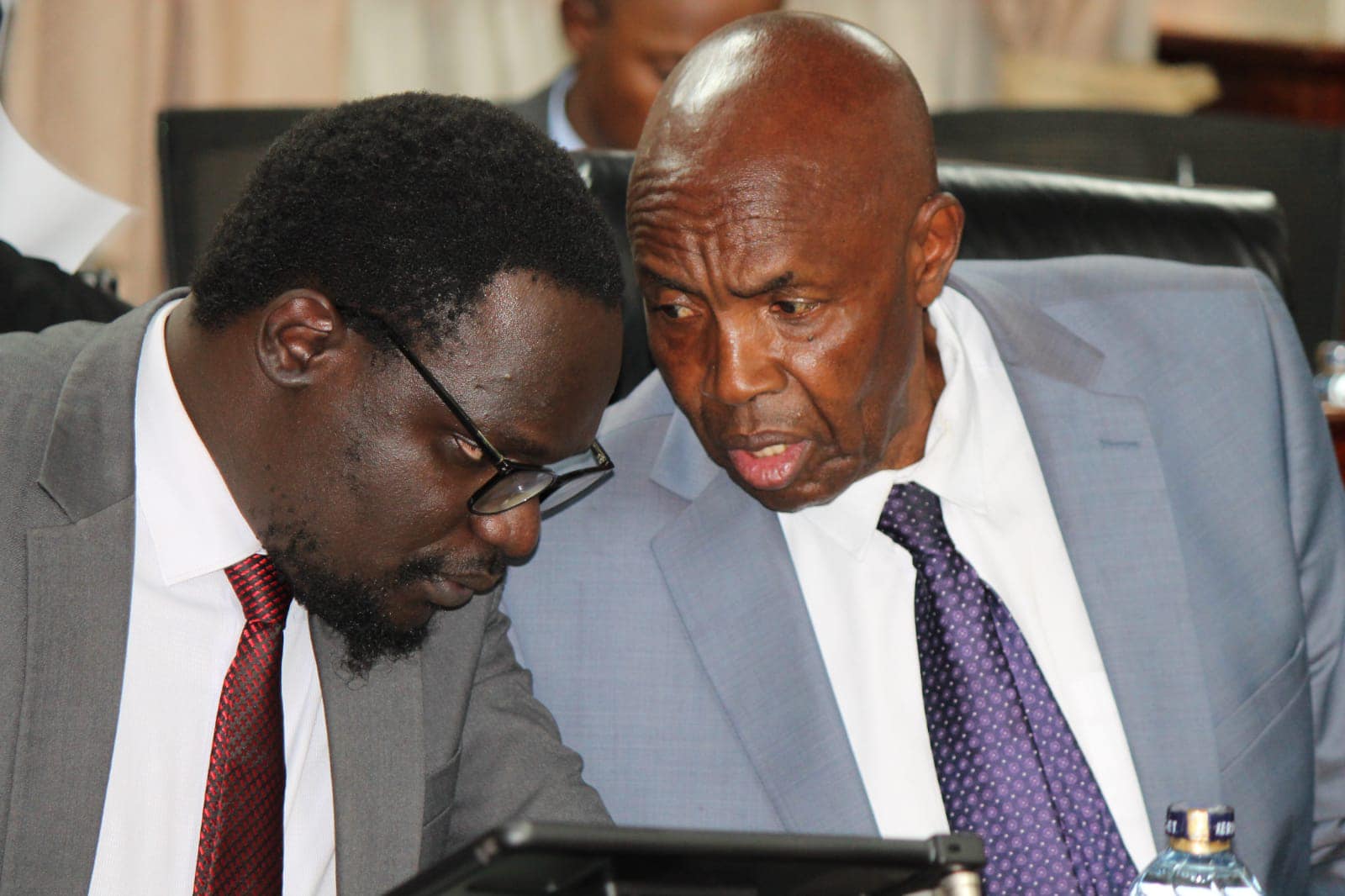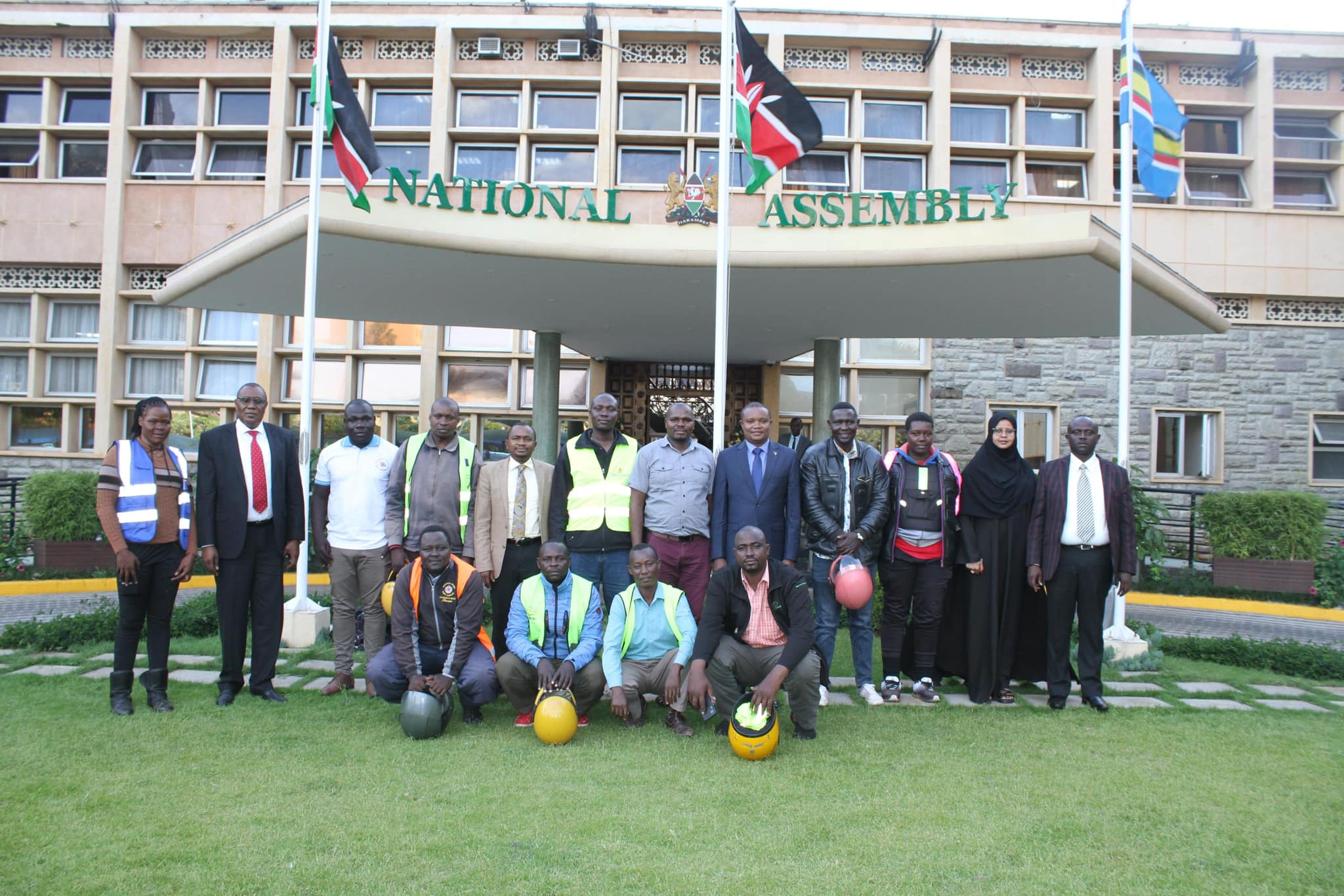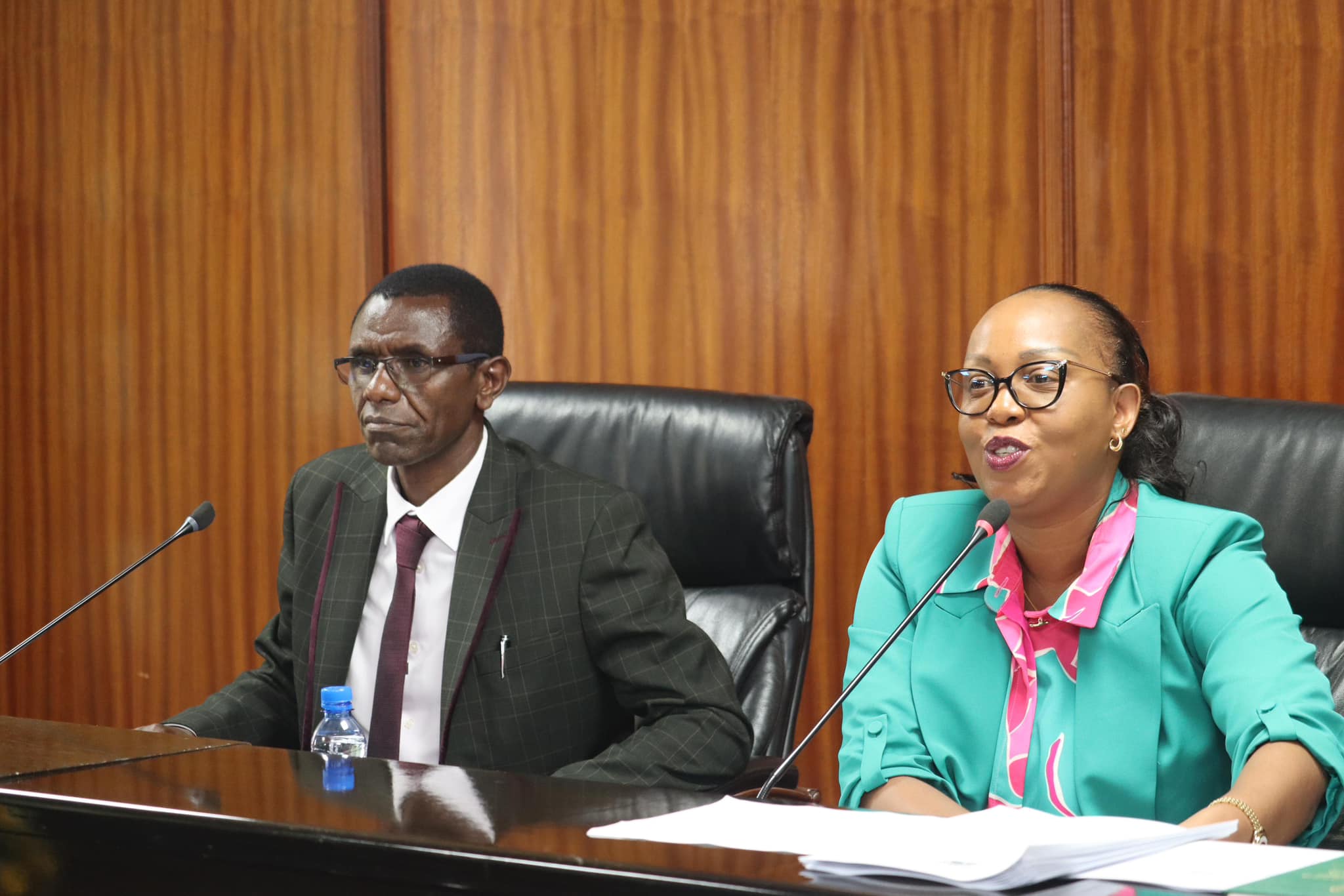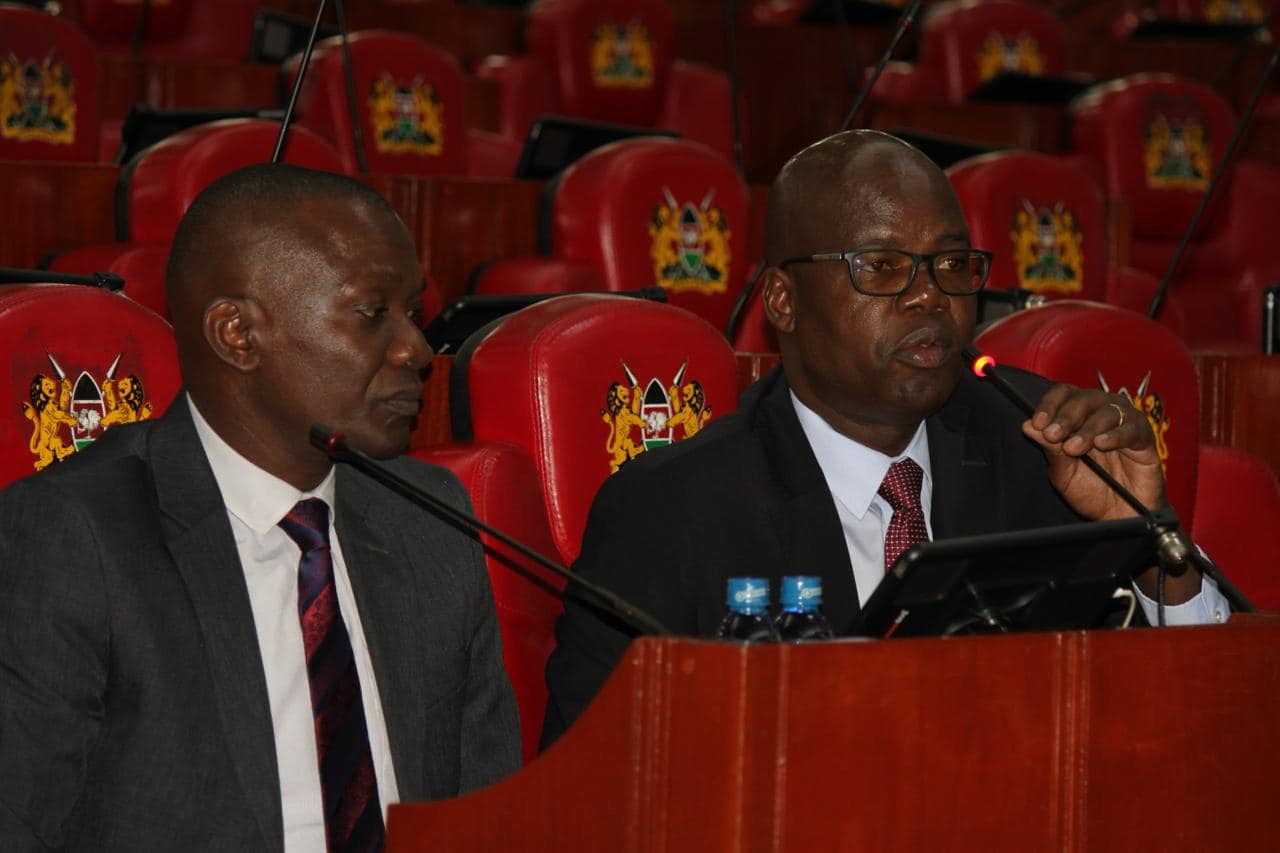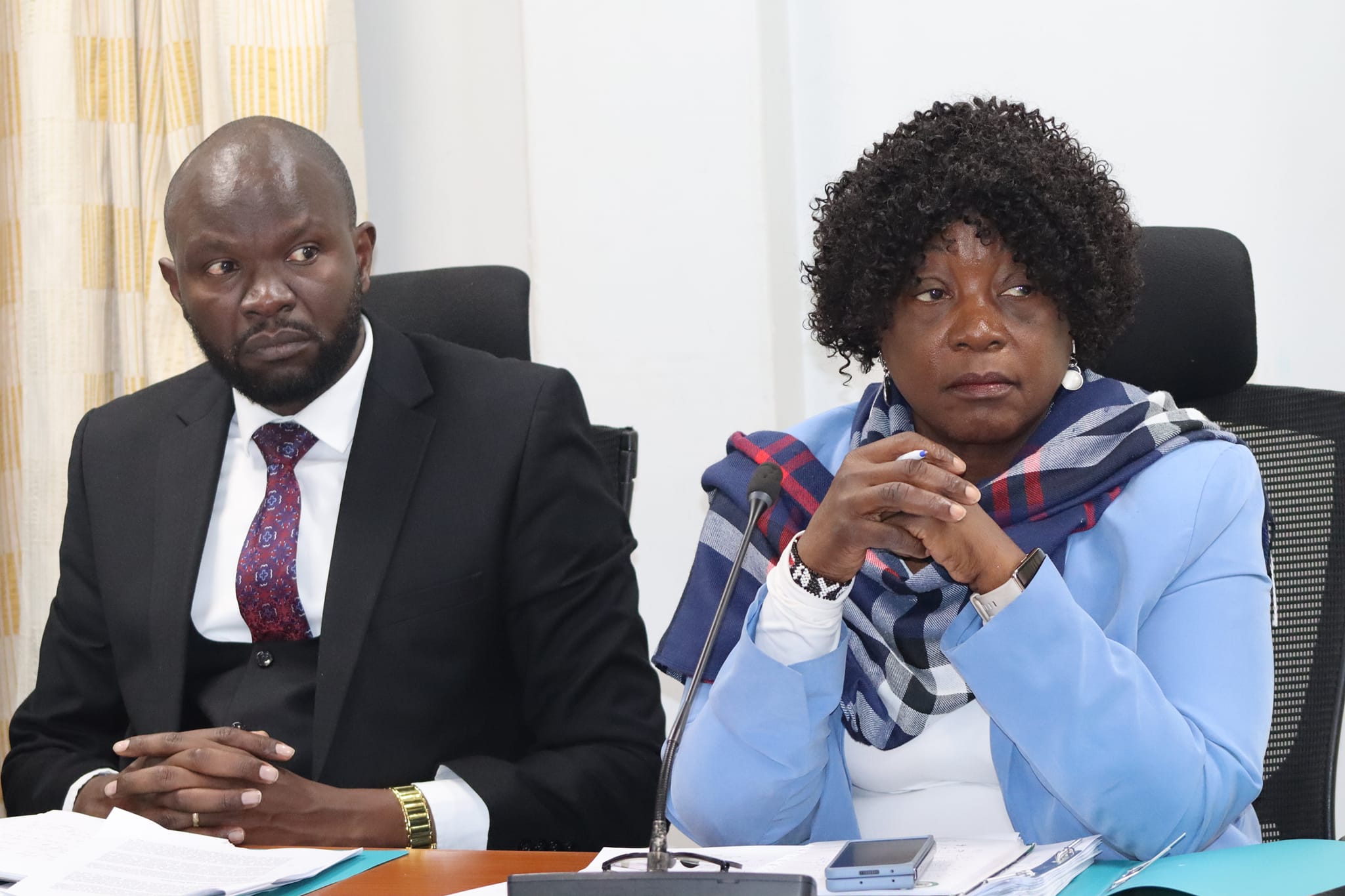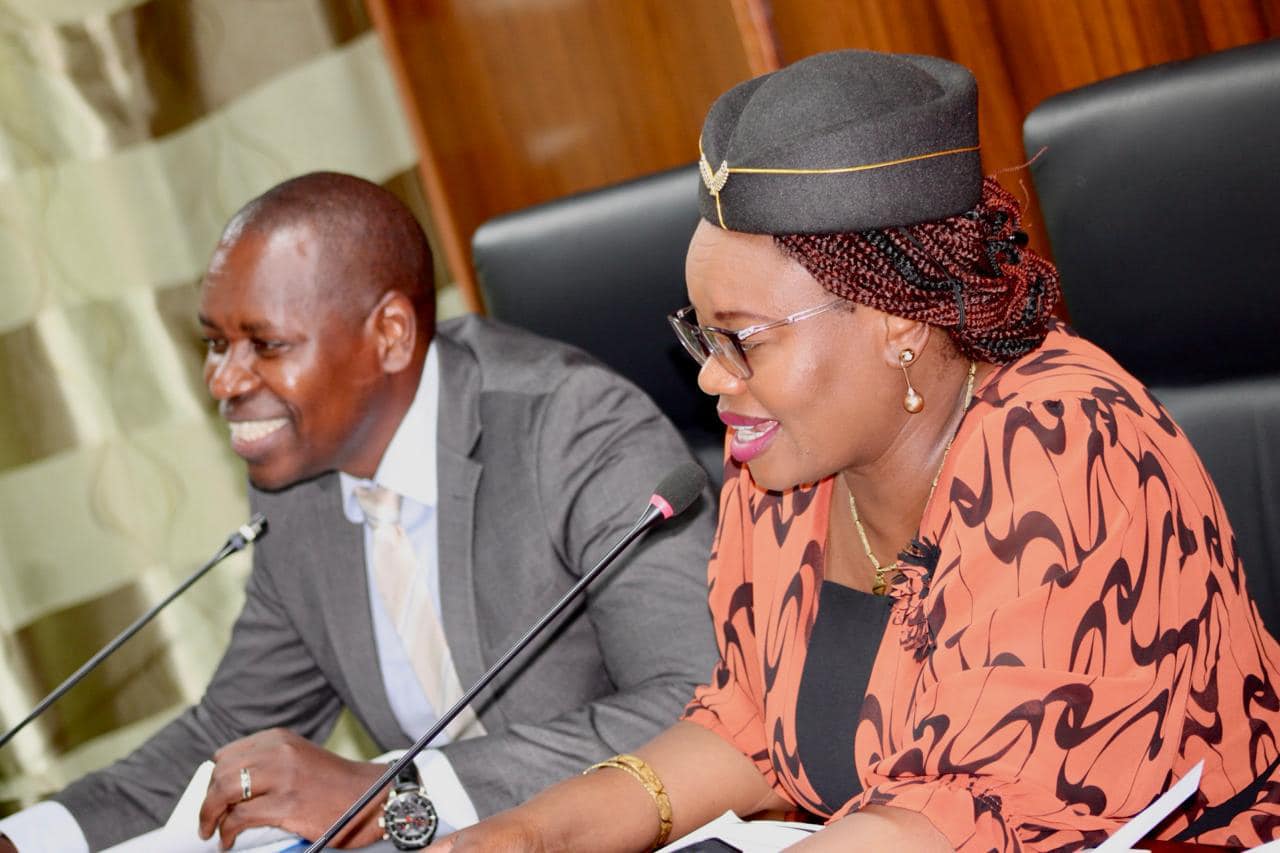Former MPs call for stringent measures to curb predatory digital lenders, as Aviation sector pleads for review of proposed taxation
Thursday, 28 November, 2024
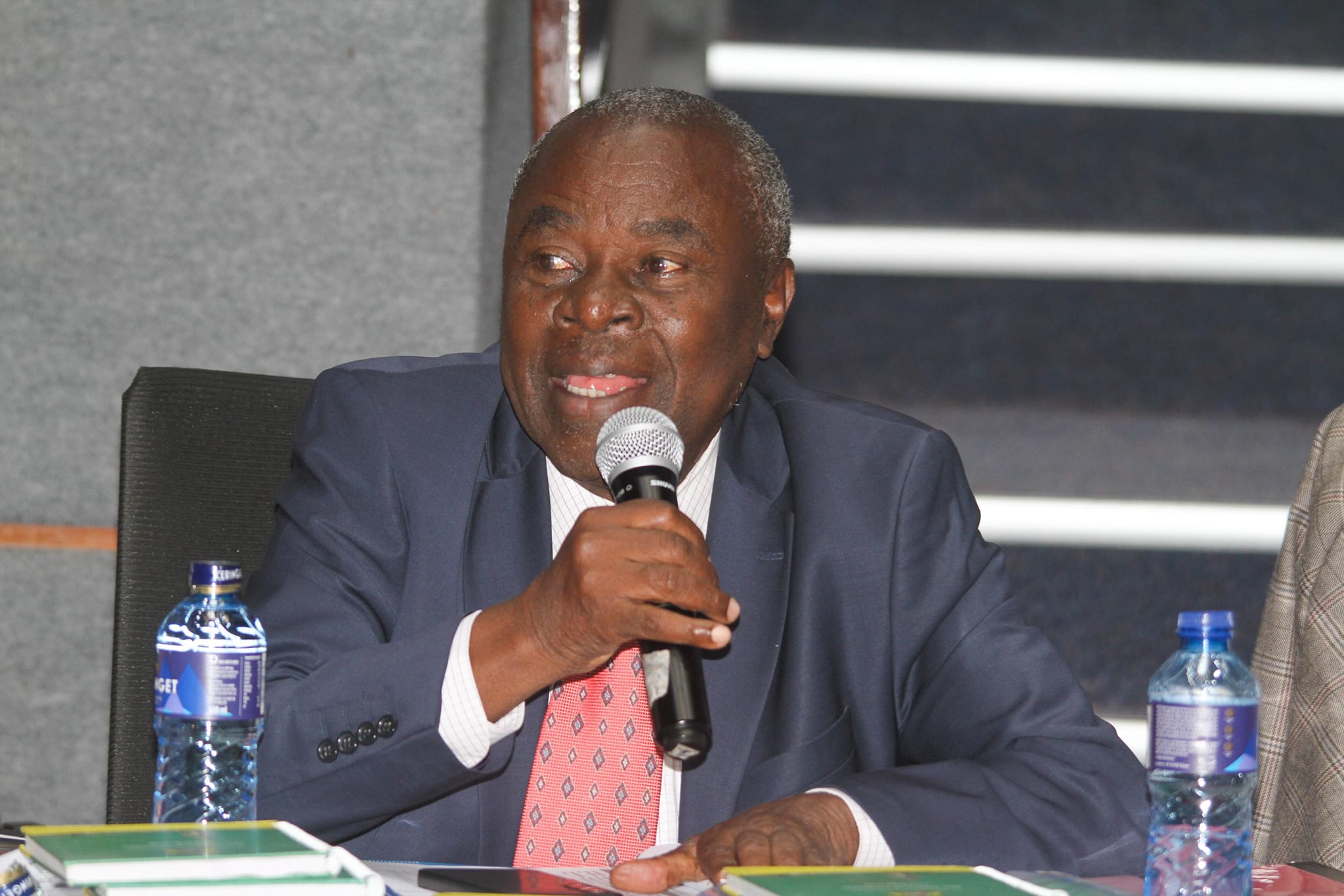
Former MPs call for stringent measures to curb predatory digital lenders, as Aviation sector pleads for review of proposed taxation
𝐊𝐞𝐧𝐲𝐚𝐭𝐭𝐚 𝐈𝐧𝐭𝐞𝐫𝐧𝐚𝐭𝐢𝐨𝐧𝐚𝐥 𝐂𝐨𝐧𝐯𝐞𝐧𝐭𝐢𝐨𝐧 𝐂𝐞𝐧𝐭𝐫𝐞
𝐖𝐞𝐝𝐧𝐞𝐬𝐝𝐚𝐲, 𝐍𝐨𝐯𝐞𝐦𝐛𝐞𝐫 𝟐𝟕, 𝟐𝟎𝟐𝟒
Former legislator Hon. Lewis Nguyai has joined a long list of stakeholders who want stringent measures instituted to cushion those unable to access loans from banks, from predatory digital lenders.
Hon. Nguyai was speaking when he appeared before the Departmental Committee on Finance and National Planning to make his submissions on the Business Laws (Amendment) Bill, 2024.
“As you are aware, Articles 31, 40 and 46 of the Constitution espouses the right to privacy, the right to property and consumers rights, respectively”, he stated
“Additionally, there have been an increase of cases of borrowers being arbitrarily deprived of their property and entering into unconscionable and unfair borrowing arrangements which are characterized by exorbitant, punitive and excessive interests rates that do not give material disclosure”, he added.
Noting that non-deposit taking Microfinance institutions, have far too long remained unregulated, he called on the Committee to institute stringent measures to ensure consumer protection.
“Further, the non-deposit taking microfinance business is largely unregulated and there is need to create standards to ensure consumer protection”, he urged the legislators.
The former Kabete legislator also wants digital lenders to disclose all the charges and terms
relating to a loan before granting a loan to a borrower.
He urged the Committe to adopt his proposal seeking to obligate lenders to give full and material disclosure of the charges and terms relating to the loans so that borrowers are fully aware of the
consequences of the borrowing arrangement.
Futher, he proposed that subsection (2) of the Bill be amended by inserting the words “ recover a non-performing loan as a civil debt and” immediately after the words “micro-finance business shall”, appearing in the opening
statement.
He said this proposal if adopted would protect borrowers from the predatory tendencies of the
lenders to arbitrary recover debt on loans by subjecting the loan recovery process to the procedures envisaged in the Civil Procedure Act.
“ By inserting the following newsubsections immediately after subsection (2)- (2A) a non-deposit taking microfinance business shall comply with the requirements of Article 31 of the Constitution and the Data Protection Act in lending loans and recovery of debts”, he proposed.
He submitted that this provision would protect the borrowers right to privacy and unnecessary
disclosure of sensitive information by obligating lenders to comply with provision of the Constitution and the relevant law on data
protection.
He further proposed that the law be amended to provide that a non-deposit taking microfinance business issues adequate notice to a borrower of its intention to recover a debt.
Commenting on his submissions, Kigumo MP, Hon. Joseph Munyoro whose request for Statement on the matter and the subsequent inquiry by the Committee occasioned this amendment, welcomed the proposal underscoring the need to slam brakes on rogue lenders.
“This proposal is very welcome. What we are trying to do is to anchor digital lending practices in law so as to address rogue lenders”, he noted.
Butula MP, Joseph Oyula supported the proposal noting that it would help a lot of people in the informal sector especially those in the boda boda sector, borrow at predictable rates.
His sentiments were echoed by the Committee’s Vice Chairperson, Hon. Benjamin Langat who noted that there is need to create order within the digital lending sector.
“People who cannot get loans from banks run to digital lenders who have turned out to be very exploitative. There’s need to regulate these digital lenders to cushion such people from exploitation”, he asserted.
Meanwhile, stakeholders in the aviation sector have urged the Committee to reconsider the imposition of 16 per cent Value Added Tax to a number of services in their industry, arguing the move would adversely impact the tourism value chain in Kenya.
The services set to attract 16 per cent VAT include into the national parks and national reserves, specially designed local assembled motor vehicles for transportation of tourists, aircraft on unladed weight exceeding 2000kgs but not exceeding 15,000kgs, direction-finding compasses, instruments and appliances for aircraft.
Others are: any other aircraft spare parts imported by aircraft operators and persons engaged in the business of aircraft maintenance, hiring leasing and chartering of aircraft excluding helicopters as well as air ticketing services supplied by travel agents.
KATA is proposing that the Committee retains the current provision of the VAT Act 2013, with air ticketing services remaining as VAT exempt.
“The cost of domestic and international travel within and outside Kenya will increase. The increase will also affect the operating costs and margins in the air travel sector”, KATA told the Committee.
KATA also cautioned that the move to impose VAT would have a ripple effect on tourism industry as air ticket services offered by local travel agencies complement the tourism eco system in Kenya as other sector players and stakeholders in the sector benefit from air ticketing services offered by travel agents.
While arguing that Kenya faces competition from South Africa, Zimbabwe, Botswana and Tanzania as a safari tourist destination, they told the Committee that the legislative framework in various groups of countries in Africa have adopted preferential taxes and fees rates for travel among their members to reduce the travel and tourism cost.
Presenting their submissions to the Committee, the International Air Transport Association (IATA) also put a strong case for the retention of the current provision of the VAT Act, 2013.
They told the Committee that the move would promote the growth of domestic and regional travel. They submitted that high aircraft acquisition costs and increase the investment costs and increase the risks on capital, hence attract less investors.
“By keeping all aircraft at VAT exempt status, domestic travel will increase in volume and KRA will collect higher air passenger service charges, VAT on hotels, meals and accommodation services. The higher volume will increase KRA’s VAT earnings sustainably”, IATA submitted.
The hearings continue tomorrow.

